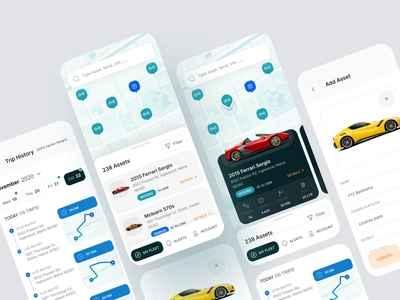
Third-party logistics (3PL) businesses provide a range of services that help companies manage and optimize their supply chain operations. These services can include transportation, warehousing, distribution, and other logistics-related tasks. In today’s fast-paced, technology-driven business world, software plays a critical role in helping 3PL businesses operate efficiently and effectively. Here are just a few ways that software is important in 3PL businesses:
- Increased efficiency: Software can help streamline and automate many tasks, from managing inventory and tracking shipments to scheduling deliveries and communicating with clients. This can help 3PL businesses save time and reduce the risk of errors, leading to increased efficiency and productivity.
- Improved visibility: Software can provide real-time data and tracking capabilities that allow 3PL businesses to monitor the progress of shipments and keep clients informed. This can help improve the visibility of the supply chain, enabling 3PL businesses to make more informed decisions and respond to changes in demand or other challenges more quickly.
- Enhanced collaboration: Software can facilitate communication and collaboration among different teams and partners within the 3PL business, as well as with clients and other stakeholders. This can help 3PL businesses work more seamlessly and effectively as a team, improving the overall efficiency of the supply chain.
- Better decision-making: Software can provide valuable data and analytics that help 3PL businesses make more informed decisions. For example, software can help 3PL businesses analyze trends and patterns in order to optimize their operations, identify cost-saving opportunities, and forecast future demand.
In conclusion, the software is an essential tool for 3PL businesses, enabling them to operate more efficiently, improve visibility and collaboration, and make better decisions. As technology continues to evolve, the role of software in the 3PL industry is likely to become even more important in the future.
Here are the top 10 features logistic 3PL software must have:
- Tracking and visibility: The ability to track and monitor the movement of goods through the supply chain is crucial for 3PL businesses. This includes real-time tracking of shipments, as well as the ability to monitor inventory levels and track delivery status.
- Transportation management: 3PL software should include tools for managing transportation, including routing and scheduling, load planning, and carrier selection.
- Warehouse management: 3PL software should provide tools for managing warehouse operations, including receiving, storage, picking, packing, and shipping.
- Order management: 3PL software should enable businesses to manage orders from clients, including tracking order status, processing returns, and handling customer inquiries.
- Financial management: 3PL software should provide tools for managing financial aspects of the business, including invoicing, billing, and payment processing.
- Reporting and analytics: 3PL software should offer a range of reports and analytics to help businesses track performance and identify areas for improvement.
- Collaboration and communication: 3PL software should enable businesses to communicate and collaborate with clients, partners, and other stakeholders.
- Customization: 3PL software should be flexible and customizable, allowing businesses to tailor the software to their specific needs and processes.
- Integration: 3PL software should be able to integrate with other systems and software, such as enterprise resource planning (ERP) systems and customer relationship management (CRM) systems.
- Scalability: 3PL software should be able to scale as the business grows, allowing businesses to add new clients and services without experiencing disruptions in service.
It is important for 3PL businesses to carefully evaluate the specific needs and requirements of their operations and select software or apps that can effectively support their business processes. Some key features to consider when evaluating software for a 3PL business include tracking and visibility, transportation management, warehouse management, order management, financial management, reporting and analytics, collaboration and communication, customization, integration, and scalability, as previously mentioned. It may be helpful to review the capabilities and features of different software or app options, as well as seeking recommendations from industry peers or consulting with a software expert to determine the best solution for your 3PL business.
Get in touch with our team to see how we can help you improve your business. Send an email at sales@despatchy.com.
